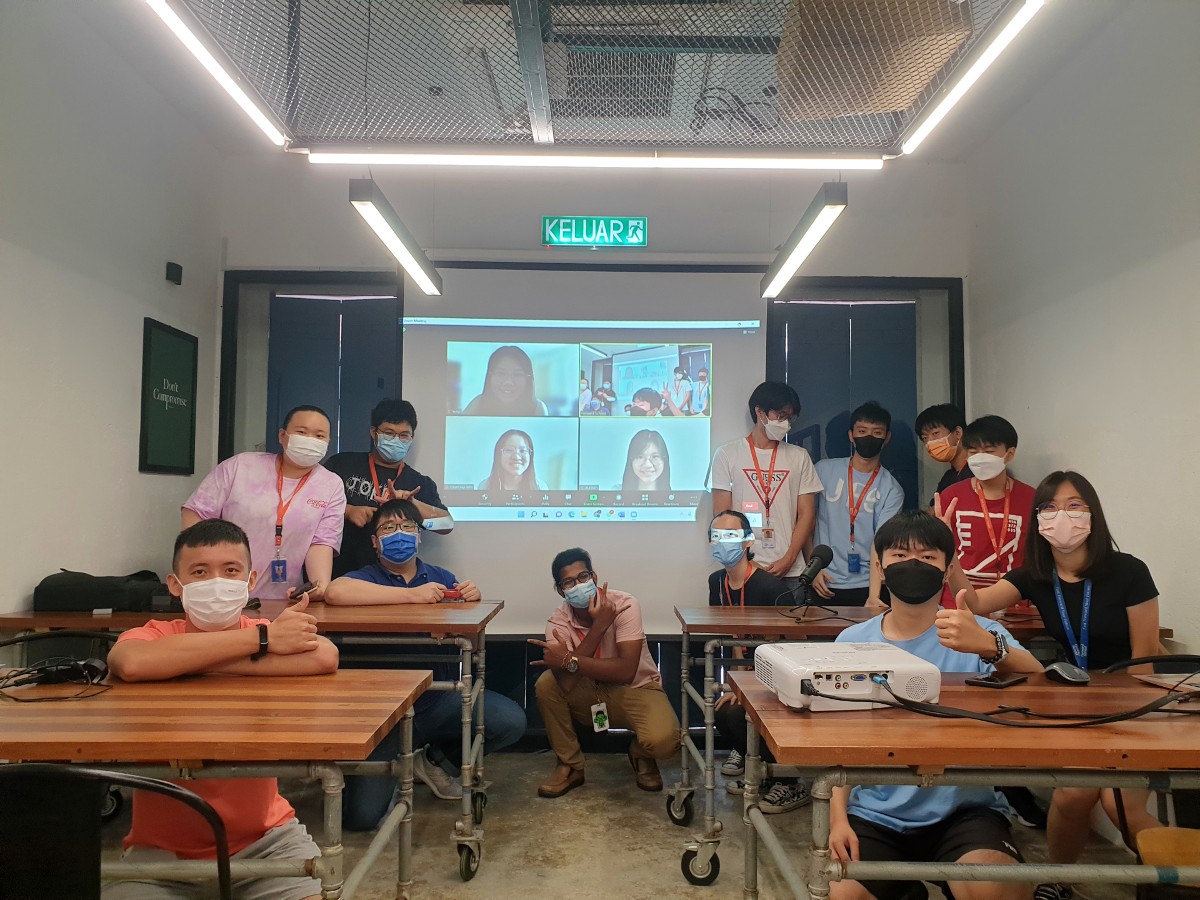

Speak to a Learning Advisor
.svg)

Growing up in Malaysia, we are often told what to do, rather than thinking through the cause and effect of each decision we make. Similarly in school, we are not programmed to think and decide, instructions are given to us and no questions are to be asked, but to follow what has been told. And when we are about to leave school for college, we find ourselves stuck and unable to process our next steps as all we did in school was following instructions and focusing on examinations.
Therefore, a lot of students end up having their parents or friends choosing their courses for them because there wasn’t much guidance given from the school to help students evaluate their choices, making them plan ahead before leaving school. And because of this, dropouts or suspended studies occur because students only find out that they are not suited nor have an interest in the course and chose to study this course because “I don’t know what to study”.
On one hand, almost 2 million secondary school students in Malaysia, over 20,000 students dropped out of school last year, hence the dropout rate is around 1% for secondary school students.
On the other hand, 1.32 million undergraduate students in Malaysia including public and private institutions, over 18,000 students in public universities dropped out, 5,000 students suspended their studies, and over 20,000 students in private institutions have suspended their studies. Hence, the dropout rate is almost around 3%.
What’s worse is, after dropping out from college/university, students are faced with student loan debt, and wasted time in studying in a pathway that leads them to a career that they have no interest in because students lack in planning for their future. The question is, will this be you in the coming time? Or will your child fall victim to the stigma of dropping out from college? We believe that there are better ways to cultivate critical thinking and make plans for students’ future career pathways, and it starts right when they enter secondary school.

In school, you should be trained to think critically with proper guidance to discover yourself, your interests and what you are good at. For instance, a student who is outgoing and very sociable might be a very good host or event planner from a personality standpoint. A student who likes to play competitive video games might turn out to be a quick problem solver, which is needed in gaming to identify, improvise and solve problems to win games.
Of course, we don’t assume that everyone is going to be successful in pursuing their pathways, you should also think realistically of your interests and what could be an alternative pathway that revolves around similar interests. Having plan Bs, Cs, Ds and so on will definitely give you directions on discovering the most suitable career pathway for you, you can never be too prepared. Waking up to doing what you love every day is a key to sustaining a successful career, and career shifts wouldn’t be necessary.

Perspectives are vital in selecting a career pathway that you are heading towards. Talking to people whom you know are in similar career fields that you are pursuing will greatly help you get the bigger picture on whether this career will help you to grow as a person. In other words, you will be clearer in terms of deciding what courses that you would study to pursue a career of your choice. Not only that, attending career fairs and Open Day in colleges will also give you different perspectives of the colleges’ values and by speaking to them, you can decide if they are seriously looking into your future, or just selling you a product.

A-levels or Foundation are necessary for students to get into a Bachelor’s Degree course at a University. However, that is not the only way to get a Degree. If you are considering fields such as Medicine, English, Psychology, Dentistry or even Science, then pursuing A-levels will be a step towards getting a Bachelor’s Degree. On the other hand, if you are someone who values work experiences over academic achievements, an A-level will not benefit you as a Bachelor’s Degree won’t be your target, you would want to be starting your career as soon as possible.

As you finish your major secondary school examinations, remember to always have plans on where to go next, researching on colleges and their courses offered, talking to their career counsellors and getting advice on achieving your career pathway desires. Doing research and talking to more people allows you to evaluate and think of the best choices for your future, as well as observing good and bad examples from seniors in the same pathway.

Finally, you should try out your study of interest before you dive deep into it in college. Now, why is this important? Imagine you are going to spend money in a cinema to watch a movie, you would want to watch the trailer before deciding to spend the money to watch the full movie at the cinema. Now, it applies the same to choosing your field of study, testing the waters is very important so that you ensure that your time and money is not wasted in a short-lived passion towards a course.
Thinking of changing the world with Apps or Software? Test the waters with us today, as we help you discover your career pathway in Software Engineering!
